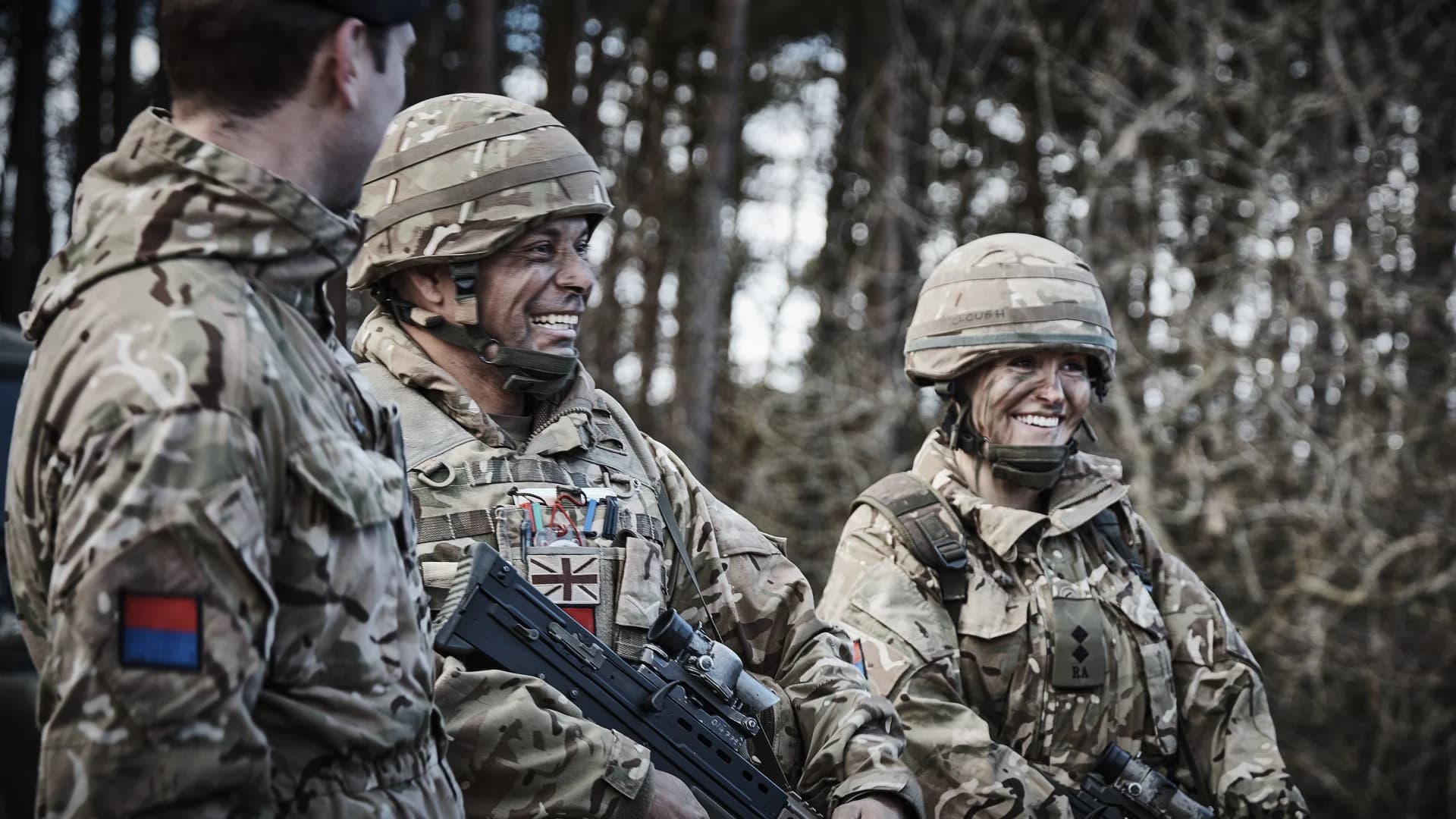
What is life like as a doctor in the army e.g. career progression, transition back into the NHS, funding and lifestyle?

Additional information
I am a GEM Student starting Medicine at UoW in September
Anonymous asked a question to Medical Roles
Category: Career Advice
Date asked: jeudi, août 22, 2019
Last reviewed: mardi, juin 9, 2020

Tori C.
Regimental Medical Officer
Hello,
I will answer as much of your question as possible, if I leave anything out or you want any more info, please ask away!
Career progression.
I am not sure what you already know about the pathway for doctors, so apologies if you already know some of this.
1. Medical School
2. FY1 & FY2
3. Sandhurst short commissioning course, approx. 10 weeks. Will take place in the October-Dec following the end of FY2. Commission as a Lieutenant. Salary will be paid from the start of Sandhurst and will be approx. £59000.
4. Phase 2 - Entry Officers Course and Postgraduate Medical Officers Course. Jan - May. During this course you recap some of the important bits, but will mostly cover things you didn't learn at medical school (Battlefield trauma, Major incident planning, Diploma in Medical care in catastrophes, CBRN (chemical, biological, radiological, nuclear) medicine, Tropical medicine and lots more!). On completion of the PGMO course you promote to Captain.
5. Start your GDMO (General duties medical officer) time properly! You will post to a Medical Regiment who will sort out your admin and will essentially have the final say on when you deploy and who with, a senior GP will manage all of this and they are usually a great source of help and support. While you are actually in the UK you will be attached to a medical centre. You can submit preferences location wise, but you are not guaranteed to get these (most people get something similar to what they asked for).
6. During your 2 and a bit years as a GDMO you will go on exercise, deploy, have the opportunity to attend lots of courses and conferences (many of which will be army funded). If you want to specialise in something competitive, this is also a great time to build up your CV. The Army is a small world and the medical community even smaller, there are lots of friendly consultants and GPs who are happy to involve GDMOs in audits/research/quality improvement projects.
7. Specialty training applications. You can leave at this point and go back to the NHS or if you want to do a specialty the Army requires (GP, Anaesthetics, EM, T&O, Public health, various surgical and medical specialties etc..) then you can apply to be an Army trainee. How competitive each specialty is will vary depending on who else is applying. In my cohort, everyone got their first choice specialty. If you do not get in first time, sometimes you are allowed to do another GDMO year and apply again.
8. Specialty training. You can express a preference for location, which can be quite advantageous. Hospitals you may not be able to access through the NHS (i.e. if you did not benchmark high enough and its a competitive deanery) you may be able to work in through the Army, as you are essentially a free pair of extra hands for the hospital.
9. Protected training. You are now left alone by the wider military and you will be managed by HQ AMS Sp Unit and the defence deanery, you are well supported and allowed to just focus on your training without worrying too much about all the other stuff.
10. In terms of further promotion (to Major, Lt Col etc..) this is all a bit up in the air at the moment, but the plan is you promote to Major after ST3 and then subsequent promotions will be done on merit.
11. For full details on salary see the latest Armed Forces Pay review, pages 92-94 for doctors salaries.
Transition back to the NHS
Most people choose to do their specialty training with the Army, but if you do decide to leave after your time as a GDMO then its very straightforward. GDMO is classed as a 'training programme' so you will have an up to date portfolio and a much stronger CV than many NHS trainees due to all the time and funding you get for courses. If the Army has paid you during medical school, you may be required to pay back some of that money (not all!) or join the reserves for a year to complete your return of service (afraid I am not 100% sure on this one as I joined after medical school).
Funding.
The salary is very generous. Housing is subsidised. A large chunk of your fuel costs are paid for you. Lots of courses are provided by the Army, those that aren't you may be able to get funding for (not always, but sometimes!).
If you wish to apply for a medical bursary then I believe you will receive an annual payment of £10,000 for up to three years and a lump sum of £45,000 on completion of your initial training.
If you apply as a direct entrant (joining the army after FY2) then you do not receive the above. If you choose this route I would recommend applying at the start of FY1 as the application process can take up to a year and you need to allow for delays (for instance you have something on your medical record they need more info about).
Lifestyle.
It depends what you want from life, but I think it's great!
You do need to be flexible on location but if that is not a big issue then there are loads of benefits.
UK based - 0800-1630 Mon-Fri. No weekends. No on calls. No nights. Generous coffee/lunch breaks. 20+ mins per patient (variable). Rarely work a Friday afternoon. Sometimes get an afternoon off for 'sport' during the week.
Abroad - Very variable, I have never been very busy, but you are always 'on call'. Usually a chance to enjoy the country as well, whether you get weekends to travel by yourself or at the end of the exercise the Army often arranges various adventure training packages.
Holiday - You get a lot of annual leave! And provided it doesn't clash with any commitments, you can take it when you want. I should know the exact number of days, 38 perhaps? But if you are deployed you get some more, if you get posted to a new unit you get relocation leave, sometimes a CO might just give the whole unit a few extra days, so it usually ends up being more than that.
If you enjoy a particular sport or hobby, there is lots of opportunity to get involved. I have been skiing with the Army on several occasions over the last 2 years.
The travel is great, in the last year alone I have been to Holland, France, Brunei/Borneo (and nearby parts of Malaysia in my own time on weekends), Oman and parts of Africa.
Other.
The biggest downside is the 3 years GDMO time will mean you are 3 years behind your NHS colleagues who go straight into specialty training. Although if you want to do GP or psychiatry they currently let you apply a year early.
You do need to be flexible, you might not always get the location you want, and some of your trips abroad may be a bit last minute, but they do try not to let that happen.
But overall I really recommend it!
Let me know if you have any other questions, but otherwise best of luck with your degree!
jeudi, août 22, 2019
Anonymous
Hi Tori. Thank you so much for posting a very detailed and informed answer and guide. I was wondering if you can join the army after completing the first part of specialty training e.g. after doing ACCS-EM or Core Surgical Training? Can you join the army after then and complete higher specialty training whilst in the army? Thank you very much.
lundi, novembre 4, 2019

Tori C.
Regimental Medical Officer
I believe you can, although I do not know anyone who has done this as a regular, but many have joined the reserves while doing specialty training. It is worth bearing in mind that army requirements are always changing, particularly in regards to secondary health care consultants, and there are only so many training jobs per year for each specialty that they can support.
If you are unsure, it would be worth re-discussing this with AMS recruiting when you are a bit further down the line - the easiest way is to start an application on the Army website, this allows the team to put you in touch with someone. (Starting an application does not commit you to anything, it simply helps the team guide you in the right direction, you can always stop the application and re-apply when you are ready).
mardi, novembre 5, 2019
Mohammed T.
This is the information they need on the actual website. Thank you!
samedi, décembre 7, 2019
Sarah C.
Hi Tori, I have two questions. 1) During your FY1 and FY2 years are you posed locally in the UK in Army Hospitals.? 2) In the GDMO years can you ask to be deployed abroad and get preferences for which exercises you are assigned too?
mardi, juin 9, 2020

Tori C.
Regimental Medical Officer
Hi Sarah,
Yes, during FY1&2 you will be posted to a JHG, this could be any one of Frimley Park, Northallerton, Portsmouth, Plymouth or the Queen Elizabeth Hospital Birmingham. You will be able to submit a preference for which hospital you would prefer to train at, but you are not guaranteed to get your first choice.
In GDMO you can volunteer to be posted abroad, and you can volunteer for deployments abroad. Your SMO (senior medical officer) at your medical regiment will be able to guide you in regards to volunteering for deployments - they can be competitive! You can also volunteer for exercises, but again, some of the more enjoyable ones can be competitive.
You are also likely also to be tasked with deployments/exercises you are not so keen on doing or haven't necessarily volunteered for.
mardi, juin 9, 2020
This discussion is closed, so no new comments can be added.